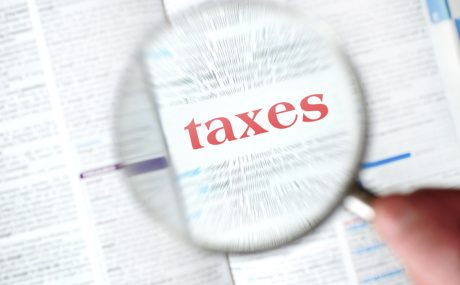Tax remains under the microscope – with further measures announced by George Osborne in the budget yesterday to tackle tax avoidance. Below David Pickstone, Head of our Tax Litigation department and Lee Ellis, Associate Barrister in the Tax Litigation department, forecast a rise in tax-related commercial litigation in 2016. The article first appeared in The Lawyer.
Tax-related commercial litigation set to come of age this year
Advisers are in the frame in HMRC’s crackdown on tax avoidance schemes, and some important precedents will be set in the UK courts in 2016.
Public interest in tax is arguably at an historic high. The tax affairs of global companies and high-profile individuals regularly lead the news agenda, fuelling public outrage towards perceived tax avoidance. A recent report from HMRC, ‘Exploring Public Attitudes To Tax’, states that most people believe little is being done about tax avoidance, an opinion HMRC are addressing through aggressive litigation of tax avoidance schemes, the expansion of their tools to tackle avoidance (eg Accelerated Payment Notices or ‘APNs’) and promotion of their successes (an 80 per cent success rate is claimed before the Tax Tribunal).
24,000 APNs issued: no successful challenges
At risk are individuals who have made what were billed as tax-efficient investments in sectors such as film, media or new technologies. Even those who sought expert advice before venturing significant funds into schemes have come unstuck and found themselves subject to an APN. More than 24,000 have been issued and many more are to be sent out in 2016.
To date, there has been no successful challenge to this tool (although some have been withdrawn due to administrative errors).
Fatal flaws in schemes, and arguments
2016 will see some precedent-setting tax cases, with the judgments that follow shaping the future of the tax avoidance landscape.
A decision is awaited in the appeals of eight Ingenious film production schemes and the Supreme Court in April is to hear the appeal in the Eclipse 35 film scheme. The Court of Appeal is also due to hear an appeal in the Samarkand & Proteus litigation (another Future Capital scheme), which considers whether HMRC guidance can be relied on to legitimise a scheme found not to work as a matter of tax law. Successful outcomes seem unlikely given HMRC’s track record and success to date.
Many arguments against HMRC proposed by taxpayers seem to fall down in the same way as the schemes themselves, in that they ignore first principles and the wider purpose of the relevant legislation.
A prime example is the case of De Silva in which the Court of Appeal recently upheld the decisions of the Tax Tribunal. De Silva sought to argue that he should be able to obtain the desired tax advantage because of a HMRC procedural error in relation to the type of tax enquiry raised. The Court of Appeal was having none of it, noting at Para 47 of its judgment, “I have to confess that [the appellant taxpayer’s] technical arguments left me with a sense of total unreality”. This is not to say highly technical or procedural arguments are not possible and always lack merit, but they must, as De Silva demonstrates, be consistent with the wider purpose of the relevant tax provisions.
Nevertheless, De Silva was a last hope for many who now strongly suspect that any challenge to HMRC’s position, whether procedural or on technical tax grounds, is unlikely to prevail. If payment of the tax has not already been demanded under an APN it is likely to be required soon, together with a high interest charge and possible penalties. In such circumstances, taxpayers are turning to those involved in promoting and advising on the schemes.
So far, there have only been a few claims against those who devised and sold the schemes. However, with many of the key cases (including Eclipse 35, Samarkand & Proteus and Ingenious Games & Ors) nearing conclusion, this is set to change. HMRC are expected to use decisions in these cases as precedents and quickly determine the outliers.
There are many hundreds of as-yet unresolved schemes that follow very similar structures to those mentioned above. In light of HMRC’s new powers, their success rate and the impending case law developments, we predict large numbers of investors will start to take action against those involved in the promotion and recommendation of the schemes.
Many more claims in the wings
At Stewarts, we are seeing this take shape already. We now act for well over 200 clients on a group of claims against Ingenious Media and various advisers (accountants, wealth managers and banks), and are working on a number of other similar claims that are due to commence shortly. We have brought together those highly experienced in tax litigation with those similarly experienced in complex multi-party commercial litigation to deal with these large multi-party actions and the issues faced.
As HMRC draws close to achieving their aim of addressing historic tax avoidance, 2016 will see a new trend emerging in the form of large tax-related commercial litigation.
This article first appeared in The Lawyer, to see the orginial click here – Tax-related litigation set to come of age this year.
You can find further information regarding our expertise, experience and team on our Tax Litigation pages.
If you require assistance from our team, please contact us or request a call back from one of our lawyers by submitting this form.
Media contact: Lydia Buckingham, Senior Marketing Executive, +44 (0) 20 7822 8134, lbuckingham@stewartslaw.com


